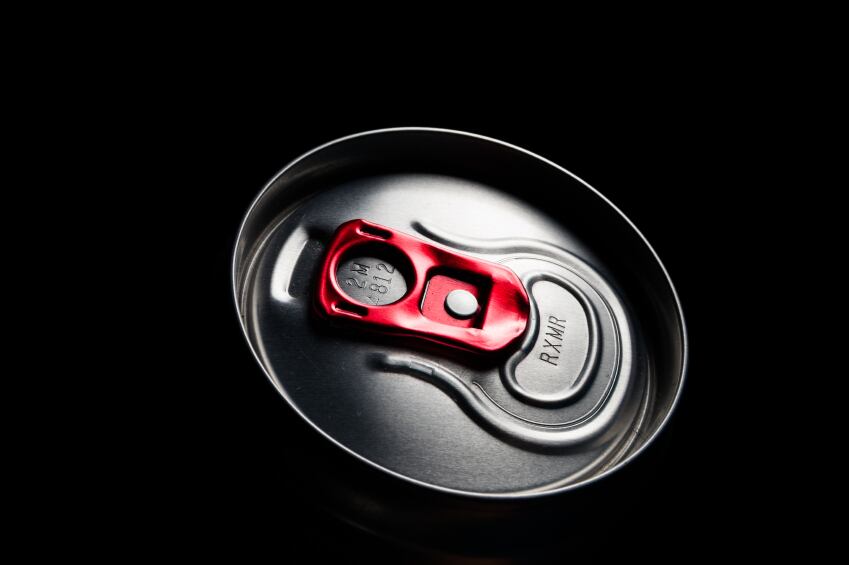The UK government's Childhood Obesity Plan includes proposals banning the sale of energy drinks to young people on the grounds that their high levels of sugar and caffeine are damaging to health. Most major supermarkets have already barred under-16s from purchasing the drinks.
But Vox Pop, written by Christopher Snowdon, Head of Lifestyle Economics at the Institute of Economic Affairs, found that the plans unfairly target teenagers, while there was a lack of scientific evidence linking the drinks to negative behaviours.
Last year, the House of Commons Science and Technology Committee concluded “the current scientific evidence alone is not sufficient to justify a measure as prohibitive as a statutory ban on the sale of energy drinks to children.”
The government’s proposals focus on the levels of sugar and caffeine, but Vox Pop argues a ban on energy drinks have no more sugar or caffeine than many drinks which are more commonly consumed and not being considered for a ban.
Less sugar than a Pepsi
According to Snowdon, energy drinks don’t contain the most sugar – many brands contain little or no sugar, even the most sugary contain less than Pepsi. Under the government’s proposals, the ban would include a can of Red Bull (250ml), with a sugar content 28 grams; 11 grams per 100ml. But there would be no ban on a can of Pepsi (330ml) with a sugar content of 36 grams; 11 grams per 100ml. “The proposed ban includes energy drinks which contain no sugar – from an obesity prevention perspective, a stated aim of the ban, this makes no sense,” he wrote.
Similarly, energy drinks don’t contain the most caffeine. The most single-serve coffees from high street coffee shops contain more caffeine than one can of an energy drink, according to Snowdon.
But a proposed ban would cover the caffeine in a can of Red Bull -- at 80 milligrams – while there would be no ban on a Starbucks Americano (venti) or a Costa Americano (massimo), which both contain 320 milligrams of caffeine. “Young people get more caffeine from tea, coffee, and cola - even the heaviest adolescent consumers of energy drinks get over 80% of their caffeine from other sources. Children aged between 10 to 17 years get just 10.5 per cent of their total caffeine intake from energy drinks. They get three times as much from cola and four times as much from tea,” Snowdon wrote.
He said that while many supermarket chains took the decision to stop selling energy drinks to under 18s, largely in response to publicity-driven campaigns which used phrases like “turning our children into addicts”, the science does not exist to back this up. Vox Pop suggests a ban could be used by such shops to constrain smaller, independent businesses who have benefitted from the voluntary ban and that such rent-seeking should be resisted.
“Banning the sale of energy drinks to minors is not justified by scientific evidence and would be discriminatory and disproportionate. The vast majority of caffeine and sugar consumed by teenagers comes from other products,” continued Snowdon.
“The government is not proposing a ban on the sale of drinks which have a higher caffeine or sugar content – and nor should it – so it is hard to see how a ban on one particular type of beverage can be justified.”
“Placing an age restriction on energy drinks would put them in the same category as alcohol and fireworks, products which pose a demonstrable risk to users and those around them. As the House of Commons Science and Technology Committee confirmed last year, the evidence of similar risks from energy drinks is sorely lacking.”
Campaigners argue that energy drinks fuel the obesity epidemic
The European Food Safety Authority (EFSA) has recommend caffeine consumption by young people is limited to 3mg of caffeine per kg of body weight per day.
The British Diabetic Association said: “A ban on energy drinks sales to children is an evidence-based approach - these products are already required to be labelled as ‘not recommended for children’ and evidence shows that high caffeine intake has negative health consequences.”
The Royal College of Paediatrics and Child Health also supports a ban on the sale of energy drinks to children and young people. “Energy drinks have no clear benefits in terms of providing energy, and there is a small but growing body of evidence to suggest that they can have a detrimental effect on children’s wellbeing,” it said.
“We firmly believe that we must adopt the precautionary principle in order to prevent harm, and that the sale of energy drinks to children should therefore be prohibited.”


